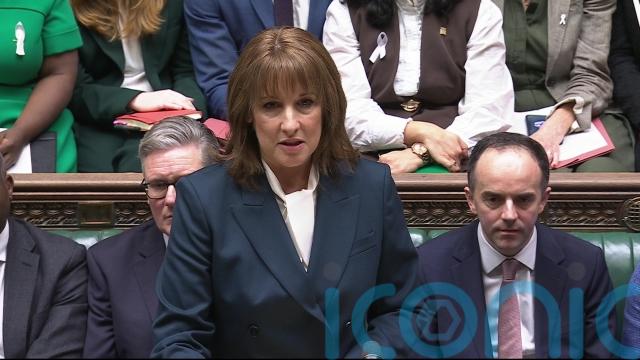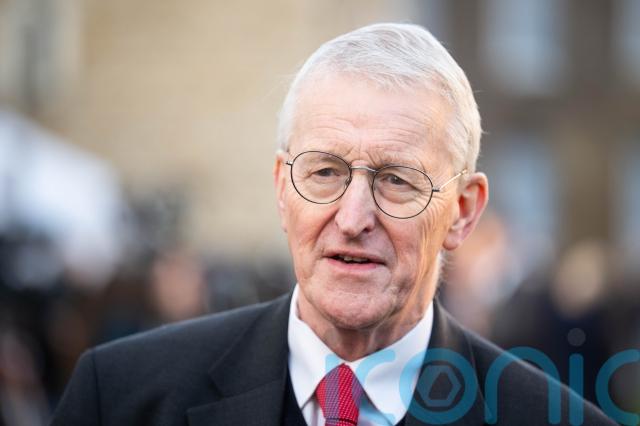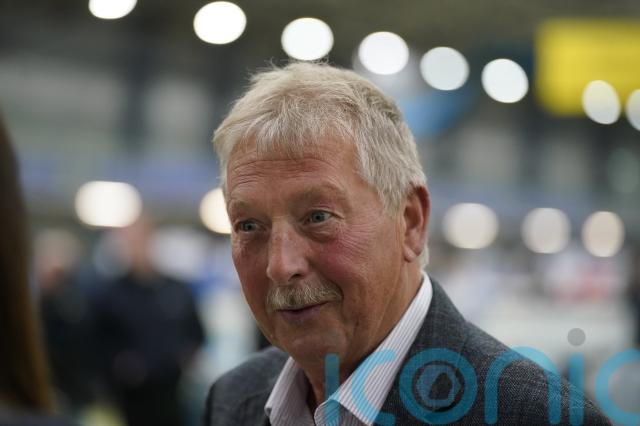
The Chancellor’s Budget “doesn’t go far enough” in investing in public services and boosting growth, Stormont’s Finance Minister John O’Dowd has said.
Mr O’Dowd said Rachel Reeves’ spending plan “strengthened the need” for fiscal devolution in Northern Ireland.
The UK Government confirmed that Stormont would receive an extra £370 million to spend.

However, Mr O’Dowd said only £18.8 million would come in the current financial year and this fell “far short of what is needed to support the delivery of frontline public services”.
Ms Reeves announced the scrapping of the two-child limit for universal credit and measures to save money from the average household energy bill.
Mr O’Dowd said: “I welcome the removal of the two-child limit, which will help lift thousands of children out of poverty here – something I have been calling for.
“I also welcome the Chancellor’s decision to increase both the minimum wage and the living wage, important steps that will support our lowest-paid workers.
“However, freezing income tax thresholds will hit working families who will have less disposable income to spend in our local businesses.
“The Chancellor had an opportunity to ensure those with the broadest shoulders carried more of the burden – but she didn’t go far enough.”
The minister said there was little in the Budget to support economic growth.
He added: “Despite calls to support our hospitality industry by reducing the VAT rate, these calls went unanswered.
“The Budget further strengthens the need for fiscal devolution. My department will now intensify work to progress this.”
Turning to additional spending, Mr O’Dowd said: “The Executive will receive £370 million of additional funding over the Spending Review period, with £240 million of this for day-to-day spending and £130 million for capital.
“While additional funding for public services is welcome, the reality is stark: following today’s announcements we will only receive £18.8 million in additional funding this financial year.
“This falls far short of what is needed to support the delivery of frontline public services.
“I am committed to working in partnership with my Executive colleagues to prioritise and agree allocations in the December Monitoring Round.”
Speaking to media in Belfast on Wednesday evening, Mr O’Dowd confirmed he plans to introduce the first multi-year budget Stormont has seen in recent years.
“I am now finalising the multi-year budget with my officials, the final part of that equation was the Chancellor’s announcement today,” he said.
“I will bring a draft budget to my Executive colleagues before Christmas. It’s then up to the Executive to decide whether they will agree to that draft budget being published. It’s the biggest decision, I think, this Executive and Assembly will make in this mandate.”

Northern Ireland Secretary of State Hilary Benn said the Budget was “really good news for families, for public services and businesses” in the region.
He said: “Families, because getting rid of the two-child benefit cap is going to reduce child poverty, the Executive asked us to do that and the Chancellor has responded.
“Pensions are going up, minimum wage is going up and the Government will fund a reduction in energy bills in Northern Ireland to help with the cost-of-living crisis.
“More money for public services. Northern Ireland has already had £1.7 billion extra in the past two years, a record spending settlement in the summer, being funded at need and an additional £370 million that the Chancellor has just announced.
“Thirdly, a package to support companies that are trading between GB and Northern Ireland, a one-stop shop, using AI to provide tailored advice and also to support small companies who want to sell goods into Northern Ireland.”
Mr Benn said Northern Ireland had been given a “significant amount of money” by the Government.
He added: “The choice for the Executive is what are our priorities, what are they going to spend it on, and if they want to raise extra money.
“I welcome the fact that the Finance Minister said at the weekend we need to think about revenue raising.”

DUP MP Sammy Wilson said it was a “bad Budget” for working people.
He added: “The real tax increase in this Budget is the freezing of thresholds, 75% of the people not paying tax today will now be dragged into paying tax.
“Indeed 25% of the population will now be dragged into paying the higher rate of tax.
“Only last year the Chancellor recognised that freezing thresholds beyond 2028 would ‘hurt working people’.
“The current income tax thresholds have now been frozen since 2021 and will remain so until 2031.
“This results in more people paying tax or paying it at a higher rate.
“Today was a missed opportunity to increase the thresholds to reflect the impact of inflation.”
Subscribe or register today to discover more from DonegalLive.ie
Buy the e-paper of the Donegal Democrat, Donegal People's Press, Donegal Post and Inish Times here for instant access to Donegal's premier news titles.
Keep up with the latest news from Donegal with our daily newsletter featuring the most important stories of the day delivered to your inbox every evening at 5pm.